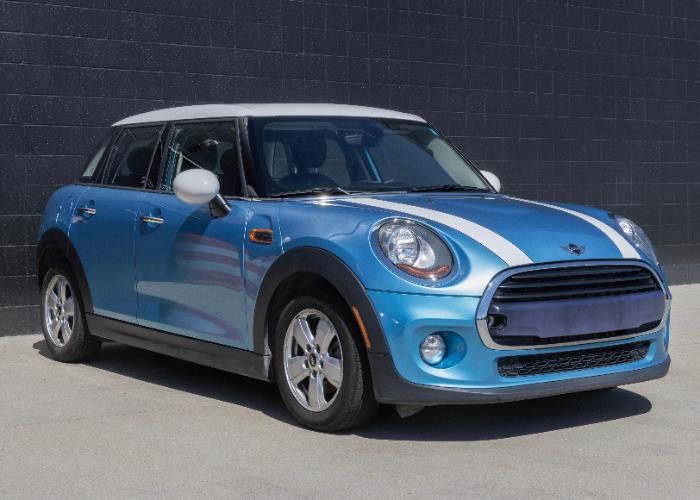The UK's most and least reliable used cars

A look at the most reliable motors on UK roads, plus those most likely to develop maintenance problems.
How dependable is your motor?
Are you constantly worrying that new warning lights will appear on your dashboard?
If so, you’re probably likely to become more concerned the older your motor gets.
To determine the brands most susceptible to problems, What Car? has collaborated with MotorEasy as part of its annual reliability study to identify the most reliable second-hand motors.
Car dashboard lights: what they mean and how much each repair will cost
How the test was conducted
Each car’s rating is determined by whether a driver would recommend the model to other users.
As well as brands, drivers gave feedback on specific makes and models.
Overall, 29,967 motorists were consulted, with data from 199 models across 31 brands.
While the researchers investigated performance over the past two years, eligible motors could be up to five years old.
Drivers gave information on faults and repair costs, with the researchers creating a “unique reliability rating for each car and brand'.
The most reliable brands
Mini racked up a near-perfect score of 98.3% across the five models covered in the research.
Looking at specific models, the brand had the most-praised SUV and electric vehicle, with its Countryman gathering 99.7% and the Mini Electric bagging 98.4%.
This was closely followed by Lexus at 97.9%.
Its ES model came top in the executive class, bagging 99.3%.
Likewise, its 2014 to 2021 NX was named the most reliable family SUV, with an exemplary 100%.
Taking third place, Suzuki has an overall rating of 97.7%, with its Swift and Vitara achieving 95.7% and 97.7%.
When it comes to particular models, the 2014 to 2021 Lexus NX and the 2021 Toyota Aygo X bagged perfect 100% scores.
New entrants
Interestingly, several new brands made their way into the top 10.
For instance, Dacia, Citroen and Renault took sixth, seventh and ninth place.
That said, Toyota fared less well, falling from second place in 2023.
As The Daily Mail points out, BMW was the sole German manufacturer to occuoy a place in the top 10.
The most reliable brands
|
Ranking |
Brand |
Rating |
|
1 |
Mini |
98.3% |
|
2 |
Lexus |
97.9% |
|
3 |
Suzuki |
97.9% |
|
4 |
Honda |
96.9% |
|
5 |
Toyota |
96.1% |
|
6 |
Dacia |
96% |
|
7 |
Citroen |
94.1% |
|
8 |
BMW |
94% |
|
9 |
Renault |
93.6% |
|
10 |
Hyundai |
93.5% |
Source: What Car?
And, the specific models impressing drivers?
|
Ranking |
Model |
Rating |
|
1= |
Lexus NX (2014-2021) |
100% |
|
1= |
Toyota Aygo X (2021-present) |
100% |
|
3 |
Mini Countryman (2017-2024 |
99.5% |
|
4 |
Audi Q2 (2016-present) |
99.5% |
|
5= |
Lexus ES (2018-present) |
99.3% |
|
5= |
Porsche 718 Boxster/Cayman (2016-present) |
99.3% |
|
9= |
Mini Convertible (2016-2024) |
99.2% |
|
9= |
Tesla Model Y (2021-present) |
992% |
Source: What Car?
The least reliable cars
At the other end of the spectrum, the more affordable MG attracted a score of 76.9%.
Next up, Alfa Romeo was the second least reliable.
In particular, Giulia and Stelvio drivers believed their motors had spent long periods awaiting repairs, with Gulia having high repair costs.
Vauxhall's Corsa Electric and Mokka Electric occupied the bottom three in their respective classes.
Note, German brands featured prominently in the bottom 10, with Audi as the eighth least reliable and Mercedes-Benz taking 10th place.
So, which manufacturers aren’t coming up to scratch?
|
Ranking |
Brand |
Rating |
|
1 |
MG |
76.9% |
|
2 |
Alfa Romeo |
84.1% |
|
3 |
Vauxhall |
84.7% |
|
4 |
Nissan |
85.9% |
|
5 |
Land Rover |
87.1% |
|
6 |
Seat |
87.5% |
|
7 |
Fiat |
88.2% |
|
8 |
Audi |
89% |
|
9 |
Polestar |
89.35% |
|
10 |
Mercedes-Benz |
89.7% |
Source: What Car?
And what about specific models?
|
Ranking |
Model |
Rating |
|
1 |
Nissan Juke (2019-present) |
50% |
|
2 |
MG4 (2022-present) |
63.8% |
|
3 |
Vauxhall Mokka Electric (2020-present) |
65.8% |
|
4 |
Kia Sportage diesel (2016-2021) |
66.2% |
|
5 |
Mazda CX-60 (2022-present) |
68.8% |
|
6 |
MG ZS Electric (2010-present) |
69.3% |
|
7 |
VW Golf diesel (2020-present) |
70.4% |
|
8 |
Vauxhall Corsa Electric (2019-present) |
72.2% |
|
9 |
Range Rover Evoque (2011-2019) |
78% |
|
10 |
Seat Leon (2020-present) |
74.2% |
Source: What Car?
Save up to £270 on your car insurance with MoneySuperMarket
*This article contains affiliate links, which means we may receive a commission on any sales of products or services we write about. This article was written completely independently.
Comments
Be the first to comment
Do you want to comment on this article? You need to be signed in for this feature